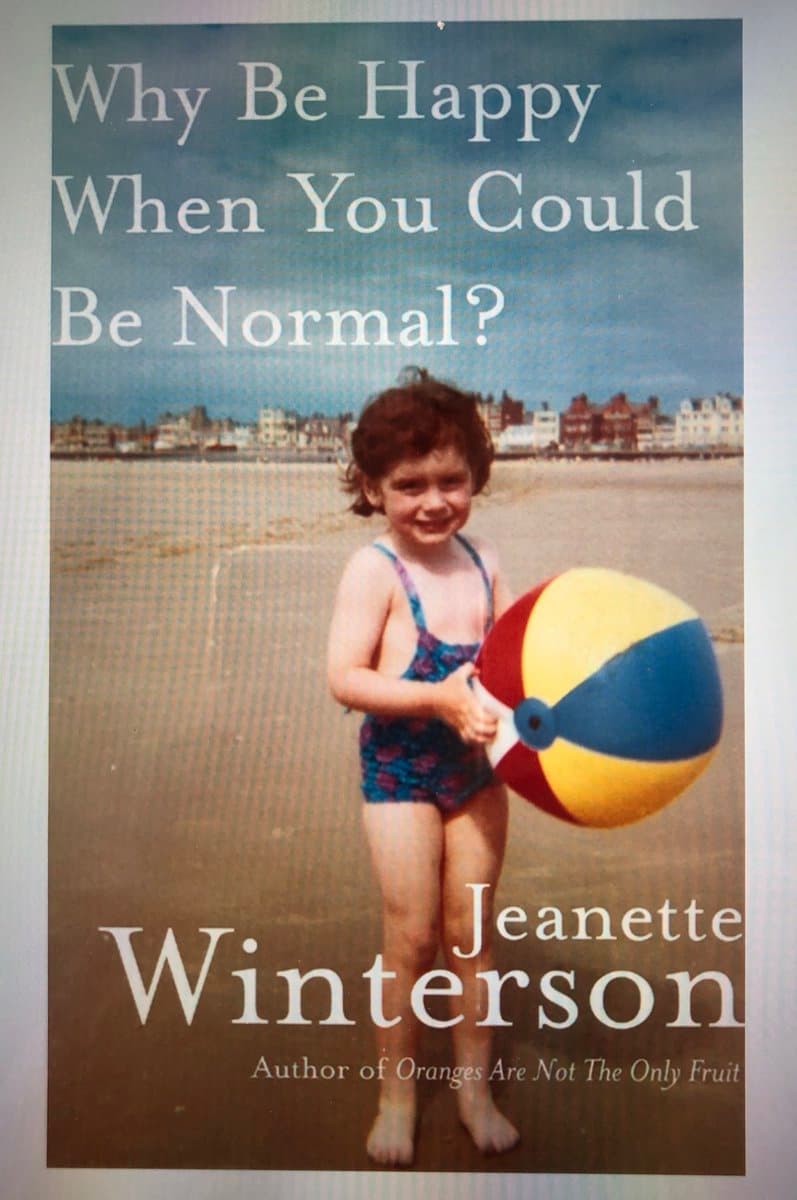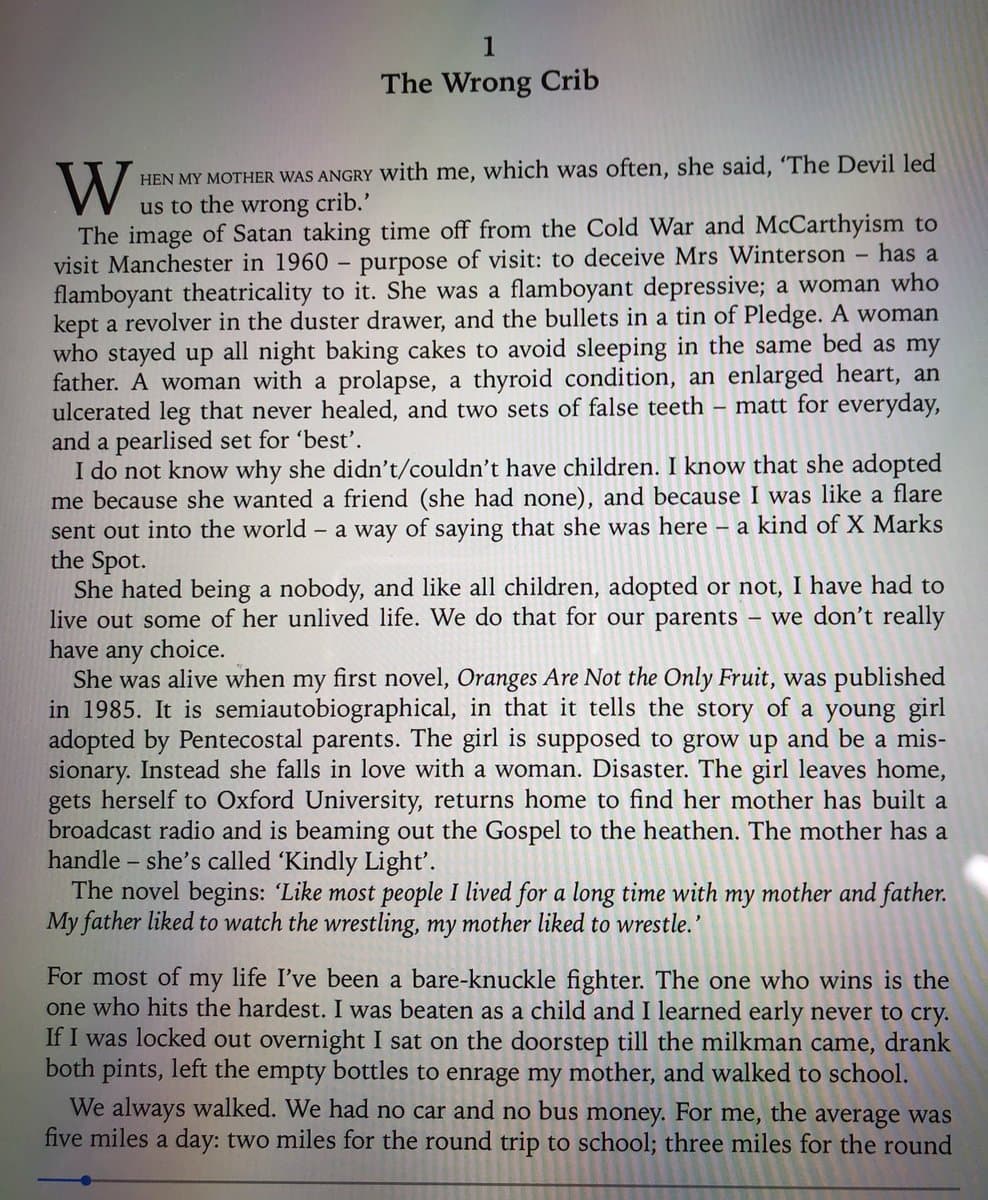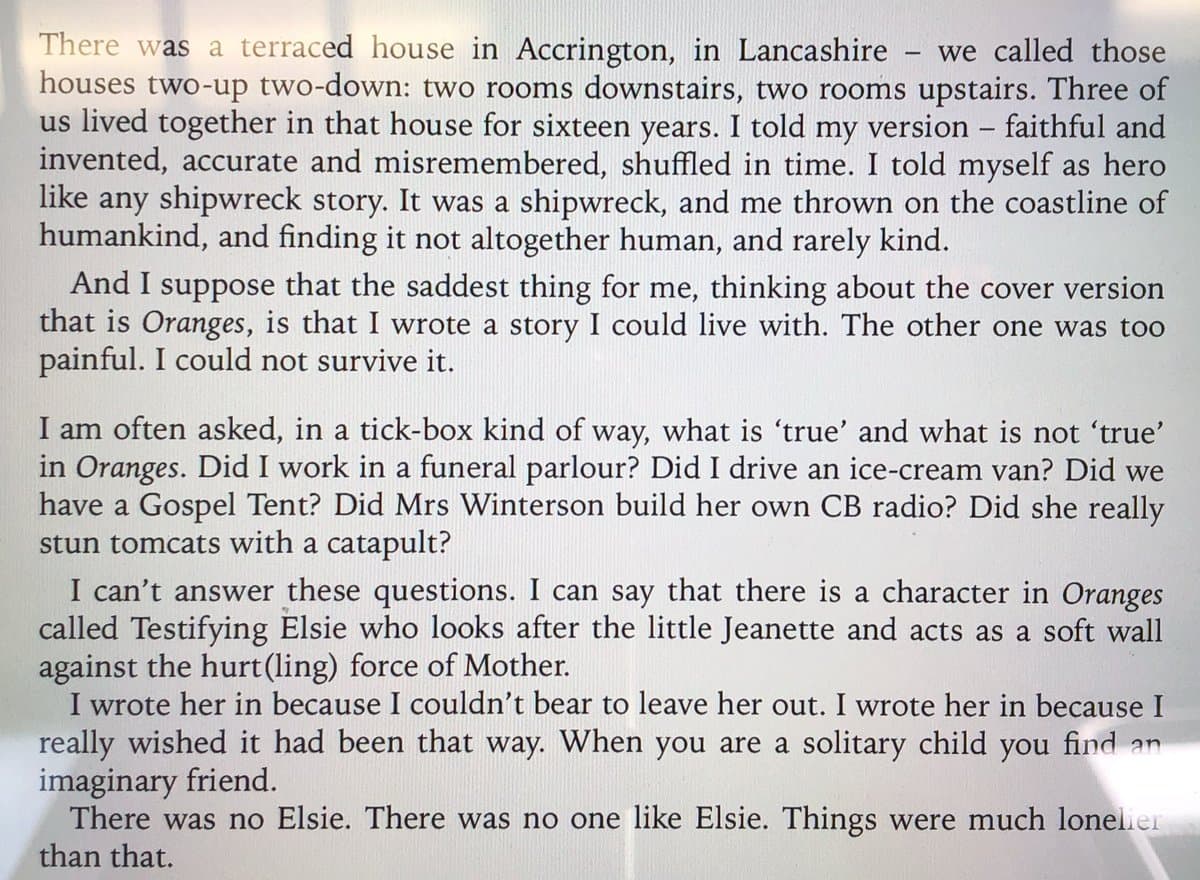🧵 View Thread
🧵 Thread (18 tweets)

Why be happy when you could be normal? Jeanette Winterson https://t.co/aS6kqRNiLz


Amazing page 1, super intimate and compelling and already paints a picture of such a raging beast of a story. Multiple markers of a rough life https://t.co/ezvLcTN4hB


“She was out of scale, larger than life. She was like a fairy story where size is approximate and unstable. She looked up. She expanded. Only later, much too late, did I understand how small she was to herself. The baby nobody picked up. The uncarried child still inside her.”

“The missing part, the missing past, can be an opening, not a void. It can be an entry as well as an exit. It is the fossil record, the imprint of another life, [...] your fingers trace the space where it might have been, and your fingers learn a kind of Braille.”

“It’s why I am a writer - I don’t say ‘decided’ to be, or ‘became’. It was not an act of will [...]. To avoid the narrow mesh of Mrs. Winterson’s story I had to be able to tell my own. Part fact part fiction is what life is. And it is always a cover story. I wrote my way out.”

“I told my version - faithful and invented, accurate and misremembered, shuffled in time. I told myself as a hero like in any shipwreck story. It was a shipwreck, and me thrown into the coastline of humankind, and finding it not altogether human, and rarely kind.” https://t.co/iF6q5rHqco


“I was not a popular or likeable child; too spikey, too angry, too intense, too odd. The churchgoing didn’t encourage school friends, and school situations always pick out the misfit. [...] but even when I did make friends I made sure it went wrong...”

”Then I ran off, triumphantly in control, and very fast the triumph and the control leaked away, and then I cried and cried, because I had put myself on the outside again, on the doorstep again, where I didn’t want to be.”

“Adoption is outside. You act out what it feels like to be the one who doesn’t belong. And you act if out by trying to do to others what has been done to you. It is impossible to believe that anyone loves you for yourself.”

“It‘s taken me a long time to learn how to love - both giving & the receiving. I have written about love obsessively, forensically [...] I loved animals, and nature. And poetry. People were the problem. How do you love another person? How do you trust another person to love you?”

“Mrs. Winterson objected to what I had put in, but it seemed to me that what I had left out was the story’s silent twin. There are so many things we can’t say, because they are too painful. We hope the things we can say will sooth the rest, or appease it in some way.”

“Stories are compensatory. The world is unfair, unjust, unknowable, out of control. When we tell a story we exercise control, but in a way as to leave a gap, an opening. It is a version, but never the final one. Perhaps we hope that the silences will be heard by someone else.”

“I believe in fiction & the power of stories because that way we speak in tongues we are not silenced. All of us, when in deep trauma, find we hesitate, we stammer; there are long pauses in our speech. The thing is stuck. We get our language back through the language of others.”

“We can turn to the poem. We can open the book. Somebody has been there for us and deep-dived the words. I needed words because unhappy families are conspiracies of silence. The one who breaks the silence is never forgiven. He or she had to learn to forgive him or herself.”